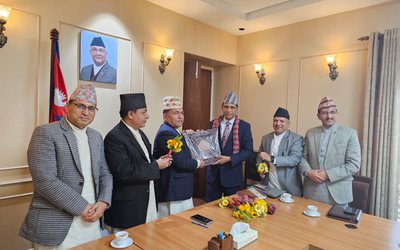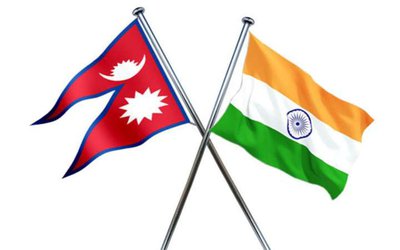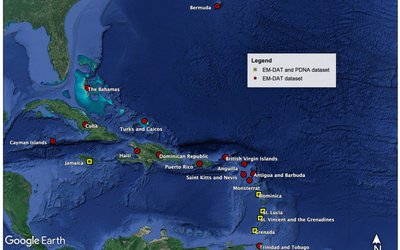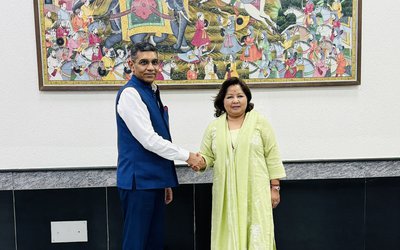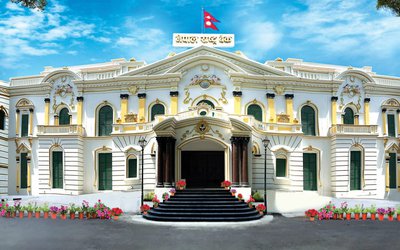
Don't you think it is too early to hold the International conference on reconstruction?
The government has already decided to hold the International Conference towards a Resilient Nepal. And the process of sending invitation has already begun. Even Haiti had held the meeting within two and a half month. Similarly, Pakistan hosted the meeting within forty-five days. According to a World Bank's disaster risk frame work, there is a tradition to hold such meetings not exceeding three months. It is a good idea to hold the meeting within two months. It is a normal practice around the world. If we don't hold the conference in time, all the sentiment will vanish. The more such meetings are delayed, the more they give space to distort figures. Now we are doing the Disaster Needs Assessment, which needs to be completed by six weeks. You can see, even now, reports on distortion of figures and data have already started showing up. If you wait longer, there will be more distortion. Another important thing is that the budget session is coming shortly. If we hold the donors conference two weeks later, what message do we have to give. Another important thing is that the months of July and August are the months of holidays in Western countries. You cannot find senior officials then. Whatever others have said about the timing, the sooner the conference, the better.
How do you see the suggestions given by former finance minister to postpone the meeting so that there will be enough time to give details about the damage?
If we cannot hold the meeting now, this will mean a great loss to the country. Of course, those who are giving suggestions to postpone it for the time being too have good reasons. However, given the present circumstances with the budget session coming closer, the utility of such conference will lessen in the longer run.
What is the stage of preparation for the donors' meet?
Actually, this suggestion is given by donors themselves. When we went to participate in the Asian Development Bank's annual meet, the Bank president organized a Nepal Partnership Forum on May 3. In that meeting Japan's vice premier and finance minister proposed that Japan will support hosting such a meeting. After that we held the meeting of donors and other stakeholders. Then we decided to hold the meeting on June25. Following the cabinet decision of last Thursday, we have already started to send the invitations. By last Friday, we have already sent the invitation letters to different stakeholders. The government has already sent the invitations formally. We have already developed a website www.icnr2015.mof.gov.np.
We have developed a concept paper and making the agenda. We have to hold the local consultation meetings. We held the meeting of major donor representatives.
We are holding a series of consultations. We will hold the meeting of ambassadors of major countries to take them into confidence. We will request them to pave the way for high level delegation in the conference. What I can say is that the pace of holding the conference is going on a war footing.
What will be the expectation from the conference?
Along with monetary help, it will have ethical value as well. The conference is going to be held when we are demoralized by the shocks of the earthquake. You cannot buy the confidence with money. So building confidence is a major part of the conference. Building confidence at the household level, tourism sector and others. If we hold an international conference, it will help to build the confidence. We want to show to the people that there is a government to take care of them. Thus, money alone is irrelevant. Calling the conference on June 25 is itself a success. The second important part is money. Nobody gives you money without credible plans and programs. For this, we are preparing PDNA (Post Disaster National Assessment), the draft will be presented on 10 June, before it is finalized. We will send the final draft to donor countries. They will get at least a week for the study of the draft.
As you have been holding a series of meetings, how is the response from the local donor representatives?
They are positive. Right after earthquake, we held the first meeting. Although the participation of the donor's representatives was less, they showed the concern for Nepal's cause.
What do you want to say to those who are saying it is too early to hold such conference?
In the first meeting, many donors' representatives were adamant about the proposed conference. Some were saying that hotels were unsafe and some were saying that the time was feasible when the aftershocks continued. Many complained that a high level participation might not be possible. When we held the second meeting, they responded positively and they also assured us to ask for the participation from the headquarters. Donors are responding overwhelmingly in favor of the conference. They have pledged their support. We can also hold the sector wise conference.
How do you see the trend?
All the donors are positive and expressing that they will support the reconstruction phase. We are doing the homework about how to get a big amount of money from agencies like the World Bank.
How easy it is to get money?
There is a lot of pressure on money. In the present context, the foreign aid is a major instrument for reconstruction. As the local revenue is declining and the domestic market is not functioning properly, we need money. Along with money, we are also expecting technology and knowledge from them. Besides that we want to share our pain. We have also viewed that we need to do that for ourselves.
How do you see the value of aid? Is it begging money?
If you have no credibility and accountability plans in place, nobody will give you money. The donors have conditions, too. We have to make the conditions suitable to us. We need to make efforts that there should not be parallel governments in the name of aid. We have already prepared the directives for INGOs and NGOs. Directives on aid mobilization of I/NGO will place certain conditions. The directives have clear cut mandates.
Is it not an intervention in the affairs of NGOs?
It is not an intervention but it is a coordination. We need to do certain level of coordination so that they feel easy. Donors also need recognition. In some cases, the government does not have expertise as NGOs and INGOs have. In that case what is the harm to use them? There are so many charities and funds and they should carry the programs. However, they should not ignore the government and do things all on their own. They cannot undermine the presence of government. They should let the government know where they are funding the money. It is very difficult.
How much foreign aid is committed?
This year is fantastic for foreign aid. We have 260 billion rupees in commitments from development partners. It is huge. Last year there was 133 billion rupees. This is an ongoing process. We are also talking with some donors to use this money in restructuring. Donors are very much concerned that Nepal should not be Haiti. We agree on that. If they misuse money hiring consultants, the money will not go to the needy. The current guidelines prohibit the misuse of money by hiring consultants.
In case somebody wants to construct the house, what would be the response?
Our aim is to seek cash. There is no doubt about that. If somebody wants to construct the house, he or she will have to follow the government guidelines. They will also work in various sectors and go for projects. If you want to implement them directly, you have to follow the government's guidance.
- ADB’S CHIEF ECONOMIST: Nepal Reduces Poverty
- Mar 11, 2025
- FM DR. DEUBA: A Successful Visit
- Mar 11, 2025
- MD GHISING: Target Of Personal Grudge
- Mar 09, 2025
- UPPER TRISHULI-1 HYDROPOWER: Supporting Community Development
- Feb 24, 2025
- ADB POWERING NEPAL: Five Decades Of Support
- Feb 24, 2025






